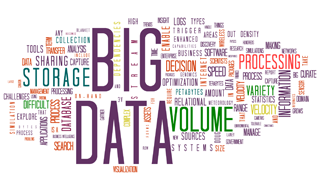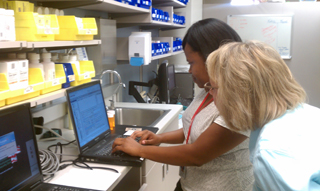Tag Archives: Privacy
Privacy Legislation Proposed To Balance New Technology
by Katie Orr, Capital Public Radio

Technology is becoming an increasing part of our lives. And Democratic Assemblyman Mike Gatto and Republican Senator Ted Gaines announced today they are putting forward a package of bills designed to protect the privacy of consumers. The bills address body cameras, drones and data collection, among other things. Read More ›
Report: Automakers Fail To Protect Connected Cars From Security, Privacy Hacks
by Ashlee Kieler, Consumerist
Last year, in a Defense Department-funded test on a 2012 model American-made car, hackers demonstrated they could create the electronic equivalent of a skeleton key to unlock the car’s networks. … [The] report found that nearly 100% of vehicles on the market include wireless technologies that could pose vulnerabilities to hacking or privacy intrusion. … Only two automakers were able to describe any capabilities to diagnose or meaningfully respond to an infiltration in real-time, and most said they rely on technologies that cannot be used for this purpose at all. Read More ›
Anthem Hacked; Health Insurance Data On Up To 80 Million Exposed
by Chad Terhune and Ryan Parker, Los Angeles Times

“If confirmed, we are dealing with one of the biggest data breaches in history and probably the biggest data breach in the healthcare industry,” said Jaime Blasco, vice president and chief scientist at AlienVault, a San Mateo, Calif., information security firm. “For individuals, in a few words, it is a nightmare,” he said. “If the attackers had access to names, birthdays, addresses and Social Security numbers, it means that information can be easily used to carry out identity theft schemes.” Read More ›
Verizon’s Super-Cookies Are A Super Privacy Violation
by David Lazarus, Los Angeles Times

Verizon is informing customers that they can opt out of having their personal information shared by visiting the company’s MyVerizon website. But here’s something Verizon is neglecting to mention. Any visit to MyVerizon will result in — you guessed it — a cookie being generated for your computer or wireless device that will automatically enroll you in what Verizon calls its Relevant Mobile Advertising program, which oversees all online tracking. Think about that: Verizon will violate your privacy even as you go through the steps the company has set up to protect your privacy. Read More ›
‘Anonymized’ Credit Card Data Not So Anonymous, Study Shows
by Seth Borenstein and Jack Gillum, The Associated Press

The study shows that when we think we have privacy when our data is collected, it’s really just an “illusion” … . The use of so-called “big data” has been a lucrative prospect for private companies aiming to cash in on the trove of personal information about their consumers. Retail purchases, online web browsing activity and a host of other digital breadcrumbs can provide firms with a wealth of data about you – which is then used in sophisticated advertising and marketing campaigns. Read More ›
FTC Calls For Strong Data And Privacy Protection With Connected Devices
by Natasha Singer, The New York Times

Last year, for instance, an electronics company that marketed what it said were “secure” Internet-connected cameras, allowing parents to remotely monitor their babies, settled a complaint by the F.T.C. that lax security practices had exposed its customers to privacy invasions. A security flaw allowed anyone with the cameras’ Internet addresses to view, and in some cases hear, what was happening in customers’ homes. Read More ›
Scathing Audit On Border Agency Drones Comes As Police Interest Rises
by Ali Winston, Center for Investigative Reporting

The critical report comes at a time when domestic law enforcement agencies are deepening their interest in unmanned aerial vehicles. Police departments around the country, including in Los Angeles, have purchased drones, though the Federal Aviation Administration has not yet granted them clearance to fly the vehicles. Customs and Border Protection’s Predator drones already have been used for domestic policing operations by federal agencies, including the FBI. Read More ›
New ‘Super Cookies’ Can Track Your Private Web Browsing — And Apple Users Can’t Get Rid Of Them
by Rob Price, provided by Business Insider, San Francisco Chronicle

[Security researcher Sam] Greenhalgh says that Apple’s Safari web browser is especially vulnerable to the exploit. While clearing cookies on Mozilla’s Firefox, Google Chrome or Opera also erases HSTS flags, deleting the super cookies, there’s no way to do so on Safari on iOS devices. This means that if you’ve had super cookies placed on your iPad or iPhone, there’s effectively no way to get rid of them short of reformatting the entire machine. Read More ›
New Law Cracks Down On Spyware
by Michael Finney, KGO-TV San Francisco

A new law in California that took effect January 1 limits the ability of rent-to-own companies to install spyware that could monitor a customer’s every move. …”It’s outrageous, you know when you are renting a computer you’re not giving permission to the rental company to capture all the information including your emails, and even pictures of you,” said Richard Holober, Executive Director of the Consumer Federation of California. The Consumer Federation of California successfully sponsored state legislation banning the practice without first notifying the consumer. Read More ›
Debt Collectors Hound Millions Of Retired Americans
by Herb Weisbaum, NBCNews.com

The CFPB report noted that some of the seniors who complained about debt collectors expressed concern that “the distress of being harassed by a debt collector aggravates existing medical conditions and thereby endangers their health.” … The CFPB advisory has sample letters that can be used to find out information about the claims being made, dispute the debt and request that a debt collector stops collection communications. If you are having a problem with a debt collector, you can file a complaint with the CFPB. Read More ›
SDPD Sued Over Cellular Tracking Tech
by Lyndsay Winkley, UT San Diego

“This isn’t just a technology that focuses on the subject of the investigation,” [First Amendment Coalition Attorney Kelly Aviles] said, “it [sweeps up] information from all of our cellphones.” … David Loy, the legal director for ACLU of San Diego and the Imperial Counties, used even stronger language to describe the technology. “It’s essentially a form of mass surveillance and that’s extremely troubling, and the public has the right to know if that is how, in fact, the San Diego Police Department is employing this technology,” Loy said. Read More ›
The Big Business Of Selling Prescription-Drug Records
by Jordan Robertson and Shannon Pettypiece, Businessweek

Now that data mining has enabled pharmacy companies to adopt the practice, some critics say technological advances are undoing protections provided by the Health Insurance Portability and Accountability Act, the federal medical privacy law. … Matchbacks have solved one of Big Pharma’s biggest marketing headaches: the layers of physicians, pharmacists, and insurers that stood between drugmakers and patients in the past. “This is the holy grail for every pharmaceutical company, to know that there’s a way to look back to actual script information,” says targeted-ad pioneer Helene Monat. Read More ›
CFPB Takes Action Against Two Alleged Student Debt Relief Scams
by Ashlee Kieler, Consumerist

The CFPB alleges that College Education Services promised consumers quick relief from default and garnishments. However, the principal debt relief approach the company used – loan consolidation − did not and could not ensure those benefits in all cases, and not in the quick timeframe the company promised. … In a separate but related filing today, the CFPB filed a lawsuit against Student Loan Processing.US to stop the company’s illegal conduct and provide restitution to consumers harmed by the fraudulent actions. Read More ›